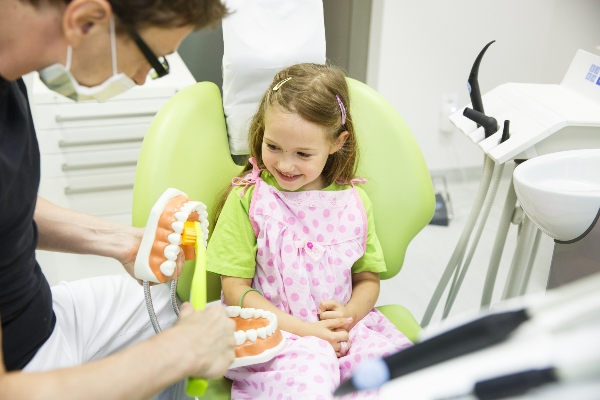 When it comes to healthy teeth and gums, prevention should be the primary focus. In addition, many
pediatric dentistry treatments can help lower the risks of developing tooth decay and gum disease in young children, who can be highly prone to these issues. Follow a dentist's recommendations for which treatments are appropriate for your child based on their age, oral health history, and needs.
When it comes to healthy teeth and gums, prevention should be the primary focus. In addition, many
pediatric dentistry treatments can help lower the risks of developing tooth decay and gum disease in young children, who can be highly prone to these issues. Follow a dentist's recommendations for which treatments are appropriate for your child based on their age, oral health history, and needs.
Preventive dental treatments for children
Dentists are well-versed in a variety of procedures that can help strengthen teeth and better defend them against disease and damage. Many of these treatments for kids are recommended by the American Dental Association because they can significantly reduce the chances of developing certain dental problems.
Routine cleanings
You may think that a professional cleaning is not doing much more for your child's teeth than brushing at home. However, dental cleanings are very important for patients of all ages because they help remove tartar buildup, which can cause cavities. Brushing cannot remove this substance from the surface of teeth and along the gum line; professional dental tools are required and a proper technique is essential to effectively remove tartar without damaging the soft tissues of the mouth. By having their teeth cleaned by a dentist on a routine basis, your child is far less likely to develop cavities and gum disease.
Dental sealants
A sealant is a protective coating that is painted on the surface of a tooth to protect its enamel from erosion. Most often, dental sealants are applied to molars, which are highly prone to decay because of their deep grooves. These pits trap food particles and can be difficult to clean, leading to cavities.
A pediatric dentistry professional will likely recommend sealants for both baby and permanent molars in children because they are quick, painless, and highly effective. According to the Centers for Disease Control and Prevention, dental sealants reduce the risk for cavities by as much as 80% during the first two years and 50% for the next two. They can also be reapplied as needed at the dentist's discretion.
Topical fluoride treatments
Fluoride is a naturally occurring mineral that helps strengthen tooth enamel and, therefore, reduces the risks of tooth decay. While it is added to many public water supplies and can be found in most kinds of toothpaste, a topical application at routine checkups can provide extra protection for both children and adults. Unlike the fluoride in toothpaste that only comes into contact with teeth for a few seconds, topical fluoride treatments stick to the teeth for several hours for better absorption.
When a child develops minor decay on a baby tooth, a dentist may recommend a silver diamine fluoride treatment. This substance can kill the local bacteria that cause cavities while preventing the decay from spreading and turning into a cavity. When combined with good home care, silver diamine fluoride can prevent serious cavities and help young children avoid invasive dental work until the baby tooth falls out on its own.
Conclusion
Good home care is the first step in protecting your child's teeth and gums. However, these pediatric dentistry treatments can do even more to lower the risks of decay and disease.
Request an appointment or call Nett Pediatric Dentistry & Orthodontics at 623-759-7658 for an appointment in our Phoenix office.
Recent Posts
Once your child’s first few teeth come through (usually before age one), it is time to schedule a pediatric dentistry visit. They can help ensure the teething process goes smoothly and address oral developmental concerns promptly. This review discusses several signs that indicate your baby has started the teething stage.Teething can begin as early as…
In pediatric dentistry, dentists assess how certain food types affect oral health and make recommendations accordingly. Common childhood snacks can harm teeth by breaking down enamel and contributing to periodontal diseases, such as sugar-filled yogurt packs, cookies, and citrus fruits.This review takes a closer look at snacks parents can provide for their children that are…
Once teething starts, you should pay close attention to your child's teeth to avoid tooth decay, cavities, and other oral health problems. A dentist specializing in pediatric dentistry might advise against pacifiers and other items that might interfere with the healthy development of their oral tissues. Sucking on a pacifier is common among infants and…


